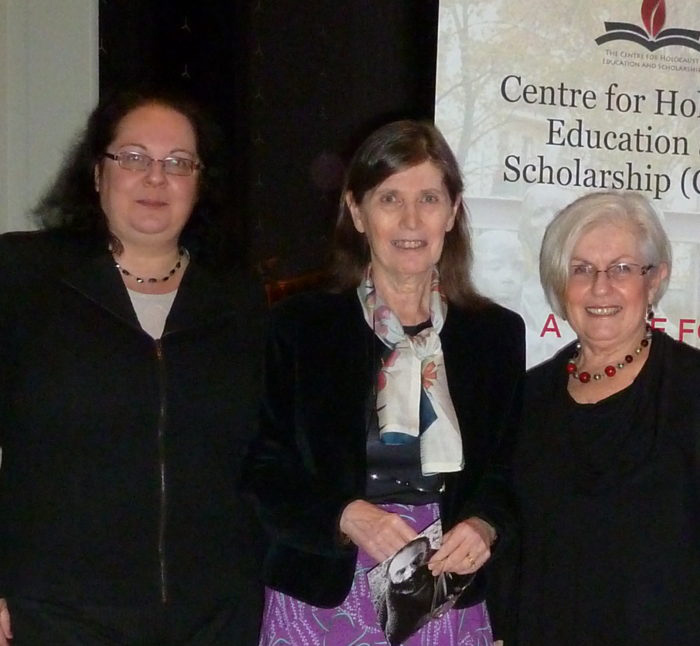
Remembering John Hirsch (1930-1989): From Holocaust Orphan to Theater’s Soul
One of the many remarkable Holocaust Survivors in this country was Hungarian-born John Hirsch, who arrived in Canada in 1947 as an orphan and rose to become one of the greatest artists in Canadian theatre history. On this year’s 70th anniversary of his arrival, among 1,123 Jewish Holocaust orphans, Hirsch’s story was told through theatre excerpts and tributes by friends and former colleagues. This unique event was held at the National Arts Centre (NAC) on November 16th as part of Holocaust Education Month, organized by the NAC and the Centre for Holocaust Education and Scholarship (CHES).
After the Nazis took over Hungary in 1944, Hirsch lost his entire family when they were deported and murdered in concentration camps; as a teenager, Hirsch avoided this fate because his parents had sent him from his small town of Siófok to study in Budapest.
Arriving in Canada through the War Orphans Project of the Canadian Jewish Congress, with the reluctant approval of the Canadian government—after lifting its “Closed Door” policy on Jewish immigration (1920-1947)—was not an easy process. Few of the orphans possessed the necessary paperwork to come to Canada. Many could not identify or remember names of relatives overseas. They had no way to provide proof of their parent’s death either.
The War orphans were children under 18 who survived the Holocaust without the guidance of a caring adult. Their education was interrupted, their pre-war homes and communities were destroyed. They endured frightening and incomprehensible violence without the support of physical and emotional maturity. Regardless of their survival circumstances, all were scared and lost years of their lives to the Holocaust. Liberation, a time of promise, became a time when children, orphaned by the Holocaust, were confronted with the enormity of what had happened and the extent of their loss.
Following his arrival in Canada as a war orphan, Hirsch was adopted by Alex and Pauline Shack of Winnipeg, who enabled his natural talents to flourish. From leading the development of the theatre scene in Winnipeg, Hirsch became head of CBC Drama, then Director of the Stratford Festival, saving the latter from its growing pains. He is credited with helping professional theatre come of age in Canada and for his exceptional work cultivating regional theatre.
National Arts Centre (NAC) president Peter Herrndorf and director Paul Thompson, who both worked closely with Hirsch, revealed how he brought a completely new dynamic to theatre in Canada with his “passion and fiery soul.”
This was followed by excerpts from the one-man play Hirsch, created by Thompson and actor Alon Nashman (originally performed at Stratford in 2012). Nashman gave the audience a sense of Hirsch’s fiery character and passionate vision which eventually brought his theatre productions onto the world stage, from New York to Israel. “I have stories of the dead and I must speak for them,” actor Nashman said in a scene from Hirsch’s life.
The rest of the evening consisted of intimate memories recounted by those who knew the artist best, including Martin Knelman, author and former arts columnist for the Toronto Star; Michal Schonberg, professor emeritus (University of Toronto) and former dramaturg of the Stratford Festival; and Camillia Holland, Executive Director of the Manitoba Theatre Centre. This discussion was chaired by Jillian Keiley, Director of English Theatre at the NAC.
“This was an extremely moving outpouring of memories because most of them were spontaneous, unpublished and deep expressions of admiration and love,” says Alvina Ruprecht, Professor Emerita, Carleton University and theatre critic, who attended the event.
By: Toby Herscovitch
Source: CIJA